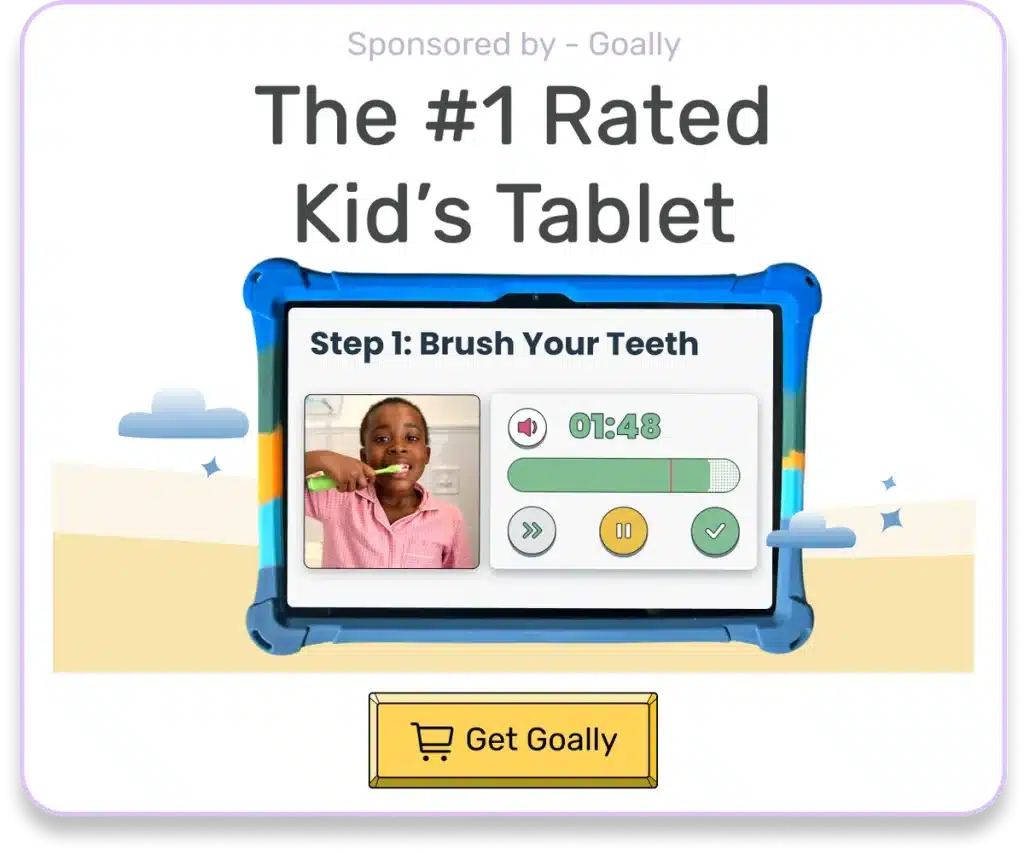As a parent, you’ve probably encountered the array of acronyms for different conditions affecting kids. One of the most common is ADHD, which stands for Attention Deficit Hyperactivity Disorder. But is ADHD considered a neurological disorder? The answer is yes. In this blog post, we’ll delve into ADHD, its neurological basis, and how understanding this can help you better support your neurodivergent child using tools like Goally.
Table of Contents
ADHD: A closer look at the neurological connection
ADHD is a neurodevelopmental disorder that affects a child’s ability to focus, control impulses, and manage their energy levels. It is a combo of genetic, environmental, and neurological factors. The neurological component of ADHD is in the brain’s structure and function, specifically in the areas responsible for attention, impulse control, and executive functioning.
Let’s break down the neurological factors that contribute to ADHD:
- Brain structure: Research has shown that kids with ADHD have differences in certain areas of the brain, such as the prefrontal cortex, which is in charge of executive functions like decision-making, planning, and impulse control.
- Neurotransmitters: ADHD is also associated with imbalances in neurotransmitters, such as dopamine and norepinephrine, which play a crucial role in regulating attention, motivation, and reward systems in the brain.
- Brain connectivity: Studies have found that children with ADHD have altered patterns of connectivity between different brain regions, which may contribute to difficulties in attention and impulse control.
Why understanding ADHD as a neurological disorder matters
Recognizing ADHD as a neurological disorder can have a significant impact on how you approach your child’s needs and challenges.
Here are some reasons why this understanding is essential:

Read more: Executive Function Test for Kids
- Reducing stigma: By acknowledging that ADHD has a neurological basis, we can help dispel misconceptions and reduce the stigma surrounding the condition. This can lead to increased empathy and understanding from others, as well as improved self-esteem for kids with ADHD.
- Guiding treatment: Understanding the neurological underpinnings of ADHD can inform treatment strategies, such as medication, behavioral therapy, and educational interventions, which can address the specific brain-based challenges your child faces.
Moreover, recognizing that ADHD is a neurological disorder also highlights the unique strengths and talents that many neurodivergent kids possess, such as creativity, resilience, and out-of-the-box thinking. By focusing on these strengths, you can assist your child to thrive and reach their full potential.
Supporting your neurodivergent child: Tips for parents
Now that we’ve established that ADHD is a neurological disorder let’s explore some practical ways you can support your child:

Read more: What is the Hardest Part of ADHD?
- Stay informed: Educate yourself about ADHD and its neurological basis to better understand your child’s experiences and challenges. This knowledge will empower you to advocate for your child and make informed decisions about their care.
- Establish routines: Consistent routines can provide structure and predictability for kids with ADHD, helping them manage their time and energy more effectively.
- Encourage physical activity: Regular exercise improves attention, mood, and overall brain function in children with ADHD. Encourage your child to engage in activities they enjoy, such as swimming, biking, or team sports.
- Collaborate with educators: Work closely with your child’s teachers and school staff to develop an Individualized Education Plan (IEP) or 504 Plan that addresses their unique learning needs and supports their academic success.
- Seek professional help: Consult with a pediatrician, psychologist, or psychiatrist who specializes in ADHD to discuss appropriate treatment options, such as medication, therapy, or educational interventions.
Using tools like Goally can also help support your child’s daily routines and tasks, making it easier for them to stay organized and focused.
Try Goally For Your Child With ADHD
Goally helps kids with ADHD stay focused and build skills. Unlike a Kindle or an iPad that kids get easily distracted on, Goally has no YouTube, no social media, no web browser, and especially no ads.
Goally uses game play as a points-based motivator for your kiddo with ADHD and helps them learn emotional regulation skills. It’s simple to set up and has an expert-informed design.

Embracing neurodiversity: A brighter future for kids with ADHD
In the end, ADHD is a neurological disorder, and understanding this aspect can have a profound impact on how we support and empower our neurodivergent kids. By staying informed, advocating for appropriate resources, and focusing on their strengths, we can help create a more inclusive and accepting world where all children, including those with ADHD, can thrive. With the proper support and tools like Goally, the future is bright for kids with ADHD.
FAQ’s About Is ADHD a Neurological Disorder
What is ADHD?
ADHD stands for Attention Deficit Hyperactivity Disorder.
Is ADHD considered a neurological disorder?
Yes, ADHD is a neurological disorder affecting brain function and behavior.
What are common symptoms of ADHD?
Common symptoms include inattention, hyperactivity, and impulsivity.
How is ADHD diagnosed?
ADHD is diagnosed through clinical evaluations, behavioral assessments, and medical history.
Can tools like visual schedules help children with ADHD?
Yes, visual schedules can help children with ADHD by providing structure and reducing anxiety.
This post was originally published on 05/08/2023. It was updated on 07/17/2024.
Emily is a seasoned blog writer for Goally, leveraging her extensive background in child psychology and special education to provide valuable insights and resources for parents. Her commitment to understanding and addressing the unique needs of these children, combined with her expertise in educational strategies, makes her a credible and empathetic voice for families.






